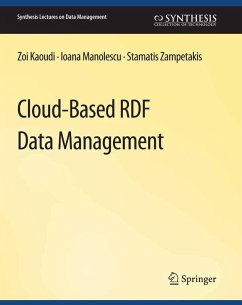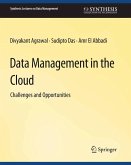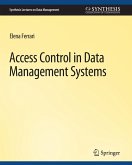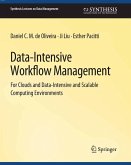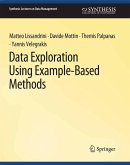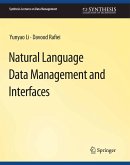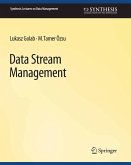Managing such large volumes of RDF data is challenging due to the sheer size, heterogeneity, and complexity brought by RDF reasoning. To tackle the size challenge, distributed architectures are required. Cloud computing is an emerging paradigm massively adopted in many applications requiring distributed architectures for the scalability, fault tolerance, and elasticity features it provides. At the same time, interest in massively parallel processing has been renewed by the MapReduce model and many follow-up works, which aim at simplifying the deployment of massively parallel data management tasks in a cloud environment.
In this book, we study the state-of-the-art RDF data management in cloud environments and parallel/distributed architectures that were not necessarily intended for the cloud, but can easily be deployed therein. After providing a comprehensive background on RDF and cloud technologies, we explore four aspects that are vital in an RDF data management system: data storage, query processing, query optimization, and reasoning. We conclude the book with a discussion on open problems and future directions.
Dieser Download kann aus rechtlichen Gründen nur mit Rechnungsadresse in A, B, BG, CY, CZ, D, DK, EW, E, FIN, F, GR, HR, H, IRL, I, LT, L, LR, M, NL, PL, P, R, S, SLO, SK ausgeliefert werden.

